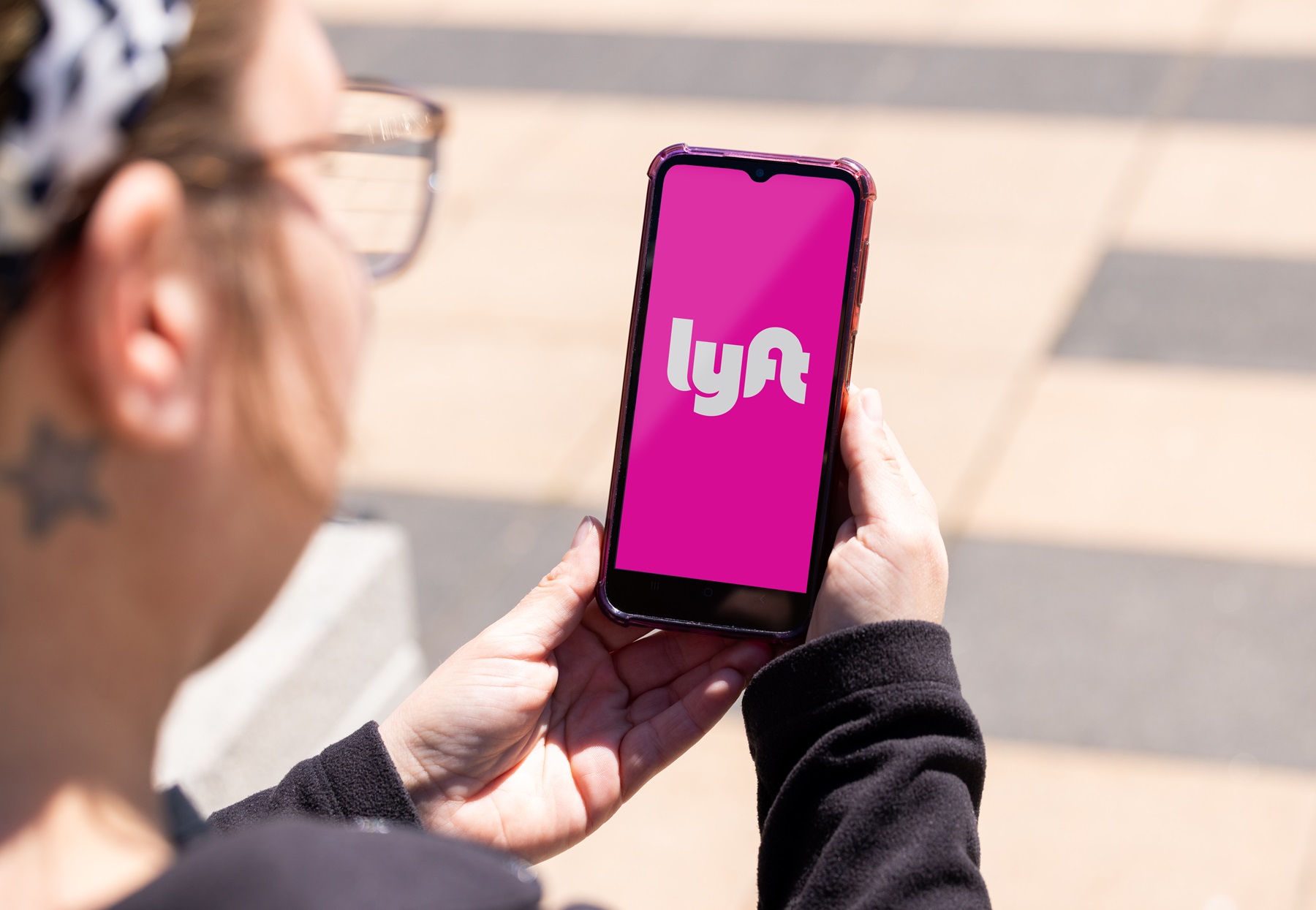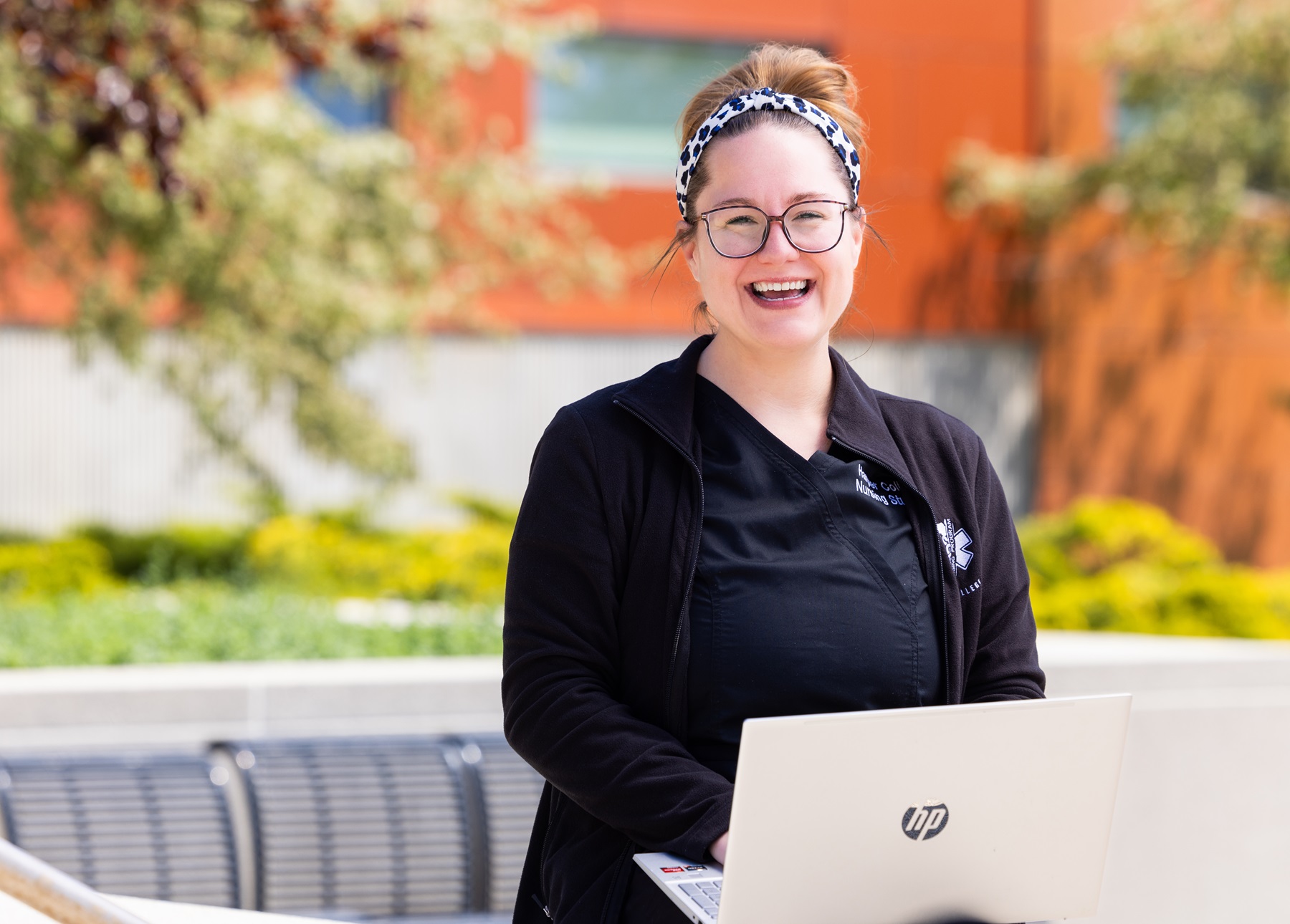Harper College is closed on Friday, April 18, for Reading Day.

 For many students, access to reliable transportation makes a big difference when it
comes to academic success. Harper College’s Lyft Pass Program is driving more students
to achieve their goals.
For many students, access to reliable transportation makes a big difference when it
comes to academic success. Harper College’s Lyft Pass Program is driving more students
to achieve their goals.
“Transportation was one huge reason why I took 10 years off from school,” said nursing student Karissa Olsen. “I don’t have transportation, and that was really holding me back.”
She’s not alone. According to the nationwide 2021 Trellis Student Financial Wellness Survey, students who don’t get transportation subsidies and can’t access reliable, safe transportation are less likely to earn degrees. What’s more:
Harper College’s Lyft Pass Program offers students a helping hand with transportation, making ride-sharing more affordable by covering a portion of the cost.
“When our students make a decision like, ‘Do I eat dinner or do I get home after class?’ they’re making sacrifices that make it harder to learn,” said Jeff Julian, Harper’s chief of staff and vice president of external affairs. “That’s why we focus on trying to eliminate these barriers for our students – especially those surrounding housing, food and transportation insecurities.”
Harper students can get eight rides per month at a discount of $10 per ride with the Lyft ride-sharing service. Anyone who is enrolled in credit-bearing classes, adult education, ESL, apprenticeship or dual credit at Harper can enroll. Rides must start or end from specific locations on Harper’s main campus in Palatine or the Learning and Career Center in Prospect Heights.
 “This program is designed to help lessen the burden for students who face transportation
insecurity,” Julian explained. “We know that $10 off on eight rides doesn’t solve
the whole challenge, but it helps and that’s a good thing.”
“This program is designed to help lessen the burden for students who face transportation
insecurity,” Julian explained. “We know that $10 off on eight rides doesn’t solve
the whole challenge, but it helps and that’s a good thing.”
After Harper piloted the Lyft Pass Program in 2022, data revealed the transportation challenges that students face:
Related reading: Hawks Care: How Harper supports students outside the classroom
Since Lyft Pass began, student use of the service continues to grow. In its first nine months, 589 riders took 10,545 discounted trips. In just the next six months, 28% more riders took 13% more rides. It adds up to more than $218,000 in discounts supported by student success funds set aside by the Harper College Board of Trustees.
“When I decided to come back to pursue nursing, I knew transportation was going to be an issue,” said Olsen. “My first semester back was the pilot for the Lyft Pass Program. I was like, ‘No way! How perfect.’ It was meant to be.”
To make sure the program continues to serve students, Harper leaders collaborated with the Office of Institutional Research to study the success of students who use the service. The data show students have more academic success when they do.
When compared to students who do not use the Lyft program, students who get discounted rides:
The data suggest the program is a hit, and Harper students agree. In a February 2023 poll, 96% of students surveyed said the Lyft program contributed to their success as a student.
“As students we’re already stressed with everyday life, and then adding the financial stress of paying for a ride or the mental stress of getting there on time can be a lot,” Olsen reflected. “Having the Lyft Pass to help with the cost is so important for me to do well in my classes.”
The Lyft Pass Program has been effective, but it’s not the only way Harper has worked to remove transportation barrier for its students.
When Dr. Avis Proctor became president of Harper College in 2019, she spent time listening to the students, faculty and staff who make up the Harper community. Many of the people in these groups identified transportation as a major issue, so she got to work solving it.
“Transportation is a foundational element that enables students to succeed. It is especially important at a suburban campus such as ours,” Dr. Proctor said. “From the start, it was important for me to bring together internal and external stakeholders to discuss and implement ways to make it as easy as possible for students to come to Harper.”
Dr. Proctor established a Transportation Taskforce, which included members of the college community and representatives from neighboring townships, local organizations and the Pace Suburban Bus system. This group’s foundational work was picked up by Harper’s Transportation Summit after the COVID-19 pandemic. The summit identified potential transportation solutions to support Harper, such as:
Each of these initiatives is designed to help more students get to class, removing barriers to education and supporting their academic success.

Starting next fall, Lyft Pass Program drop-off/pick-up locations will likely be expanded to include clinical sites for students in health careers programs. In addition, after the current semester, administrators will examine the data and plan for the future of ride-sharing at Harper, including long-term funding sources.
“Lyft Pass is one way we demonstrate a culture of care on campus,” Julian said. “These types of programs provide wraparound services that show that we understand that getting your college degree is not just what happens in the classroom – it’s the things that happen outside the classroom as well.”
For Olsen, that culture of care has made a tangible difference for her studies. She is set to graduate from the Licensed Practical Nurse program in May and will pursue the LPN to RN program.
“The Lyft Pass Program is truly a great service and something so special that Harper offers,” Olsen said. “It’s really made a big difference for me and my college experience.”
Learn more about the program and sign up for discounted rides.